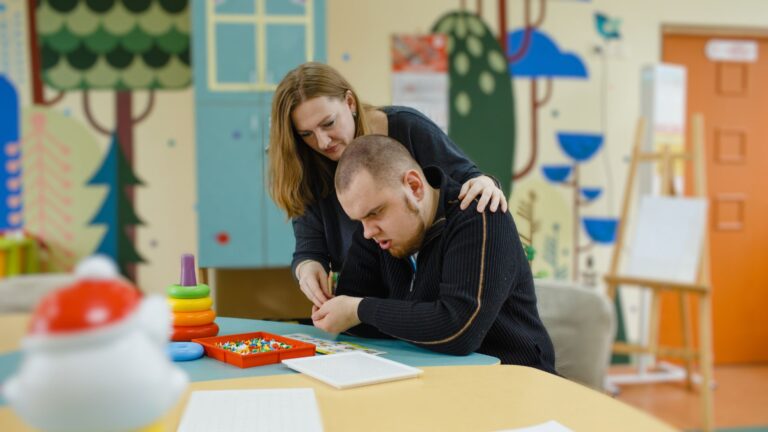Recent developments in autism care have strongly indicated that early intervention is the ideal approach to providing effective behavioral health services. While there doesn’t appear to be a definitive age for an autism diagnosis, most experts say that children should undergo the testing and screening process between the ages of 2 and 4 for the best outcomes. However, many individuals on the spectrum only receive a diagnosis much later in their lives, and the reasons for this vary on many factors. Fortunately, it’s never too late to receive an autism diagnosis, and autism testing for teens presents a fantastic opportunity to undergo the testing and screening process at a later age.
At ABA Centers of Florida, autism testing for teens is a mainstay in our line of autism care. We’ve been fortunate to witness the effectiveness of our ABA therapy services for children and teens alike, and we always advocate for undergoing the testing and screening process even if you feel like it’s “too late.” Let’s break down the autism testing process for teenagers and highlight why autism therapy is effective no matter a person’s age.
The Role of Early Intervention in Autism Care
The earlier a diagnosis occurs, the more effective targeted therapy will be with any medical condition. This notion remains the same for autism therapy because these programs occur while a child’s brain is still forming. In turn, early intervention ABA therapy has a significantly better chance of success in the long term since it provides children with the best start possible and a better opportunity to reach their full potential.
While autism testing for teens may be counterintuitive regarding early intervention, it doesn’t mean this process is less critical when delivering reliable and effective ABA therapy services. We understand that not every child will showcase autism signs before puberty, and not every family may see symptoms or have the means to test their child at a young age. Our autism testing for teens aims to give these individuals the best opportunity imaginable while adhering to family and restrictive circumstances. Receiving an autism diagnosis at 13 compared to 2 years is much better than receiving no diagnosis.
Our Autism Testing for Teens Process
At a glance, our autism testing for teens doesn’t differ from our testing and screening processes for children all too much. However, differences arise in the developmental behaviors we look for, the continuation of such behaviors, and how these behaviors affect the individual’s life. Teens and children will undoubtedly be at considerably different points in their development when they undergo the testing and screening process. Certain areas will vary, such as speech and language, fine and gross motor skills, thinking, and academics, but this does not inhibit our ability to make a reliable diagnosis.
Even though we may focus on areas of development specific to teens, our initial evaluation, analysis, review, and official diagnosis process remains the same. We utilize the same tests and observations and rely on the same autism rating scale to help us determine whether your teen has another condition that isn’t autism. Let’s analyze the autism testing for teens process step by step:
1. Initial Evaluation – During an initial appointment, our clinical team will meet with you and your teen to learn more about your specific situation and goals. We will then proceed with our standard assessments, including the Autism Diagnostic Observation Schedule (ADOS-2), which observes your teen’s repetitive behavior, play, communication, and social skills. These assessments are all play/activity-based and occur in a friendly and comfortable setting. A typical evaluation appointment involves several components and lasts two to four hours.
2. Analysis and Review – Our medical specialists will then review the results of your autism testing session, which usually takes one to two weeks. Here, we analyze various data points, intensively study the test results, and collaborate with many team experts to create an official report that may warrant an autism diagnosis.
3. Diagnosis Report – We will share our findings and relay any official diagnosis to you and your family at a follow-up appointment. These findings include a written report and recommendations for autism treatment options if we deliver an official diagnosis. Autism diagnosis or not, this appointment is rightfully personal, emotional, and confidential. Our team members pay close attention to your comfort levels throughout this process and are generous with our time and support when discussing these results.
Autism Tests Administered During the Screening and Evaluation Process
We utilize the following tests and assessments during our screening and evaluation process:
- Autism Diagnostic Observation Schedule (ADOS-2), which is a structured observation of your teen’s behavior, play, social, and communication skills
- Autism Diagnostic Interview-Revised Test, where a specialist speaks with you about your teen’s past and current behaviors related to autism
- The Childhood Autism Rating Scale, Second Edition, which consists of 15 questions to help determine whether your teen may have another condition that isn’t autism, such as ADHD, or if your teen has a combination of conditions
- If needed, additional evaluations that test your teen’s cognition, language, vision, hearing, and motor skills
How Does Teen ABA Therapy Differ from Child ABA Therapy?
Teen ABA therapy differs from our child ABA therapy services in the skills we aim to teach and develop. For teens, we work to teach adaptive skills that can enable them to have some level of personal independence. Adolescence comes with plenty of challenges and unexpected growth, so learning to maneuver through these is crucial for a proper transition into adulthood. We also help teens meet specific standards that others the same age or social group may expect to reach.
Specific skills we target in ABA therapy for teens include:
- Attention and Focus – Teens take on much more responsibility as they transition from early childhood. We help them get into the habit of focusing on a goal through various play-based activities such as card games, board games, and others.
- Social and Communication – As teens enter middle school, they’re flooded with new words and terms, matured forms of communication, and unpredictable social settings. Our teen ABA therapy helps them develop the necessary skills to overcome obstacles associated with these emerging situations.
- Finances – Adolescence is usually the first time individuals start to carry money around with them. We help teens learn to handle, exchange, count, and protect their money and other important personal belongings.
- Self-Care – There’s no sugarcoating it – puberty demands a more regimented self-care routine. We teach valuable skills such as grooming, showering, washing hair, shaving, and brushing teeth. Our therapists will work on establishing personal hygiene routines and finding ways to overcome body changes, hormones, and emotional volatility.
- Reading – As literacy expectations grow, adapting to these changes becomes more demanding with various external pressures. Our ABA therapy for teens refines reading skills and teaches ways to incorporate these skills into daily life.
Autism Testing for Teens at ABA Centers of Florida
If your teen shows any signs or symptoms of autism or other behavioral disorders, don’t hesitate to begin the teen autism testing and screening process with ABA Centers of Florida. The sooner your teen receives an official diagnosis, the sooner they can learn the necessary skills to progress through this challenging life period.
Contact us at (772) 772-1975 if you have questions about our treatments, services, insurance, or testing process.








